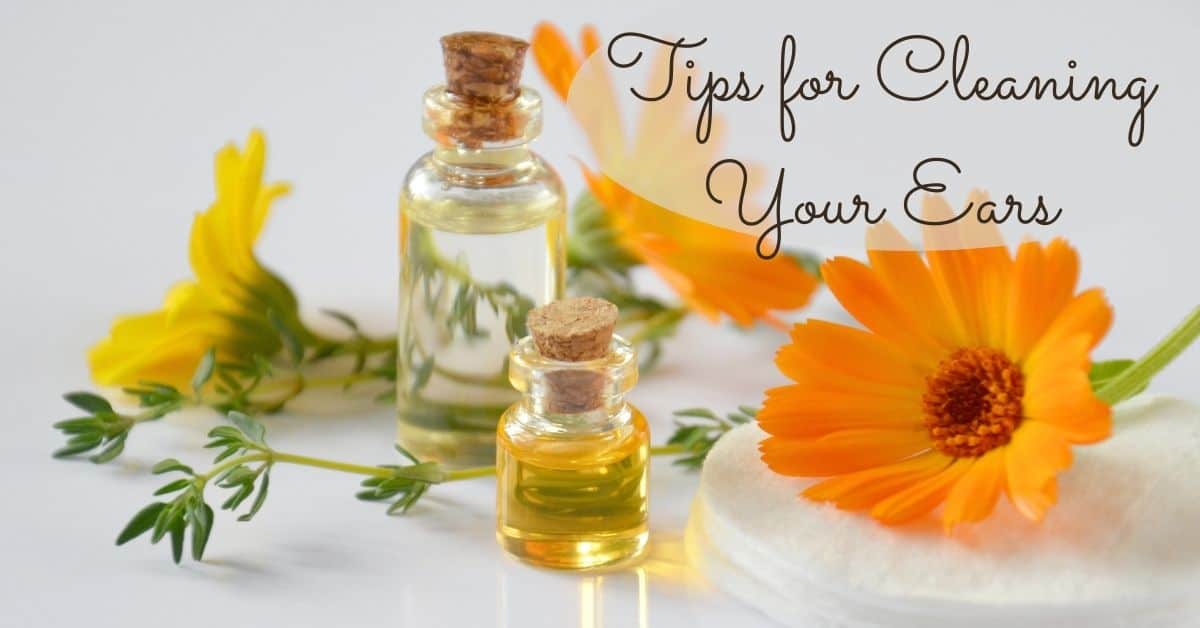Many people find earwax kind of gross or dirty, but in reality it plays a very important role in keeping your ear canals clean. Traditionally, many use cotton swabs to remove earwax, but these can often lead to more damage than good. Let’s explore some of the best and safest ways to remove earwax.
What is Earwax and Why is it There?
To understand how to clean your ears, it is important to first understand the essential role that earwax plays in your ear’s health. Medically referred to as cerumen, earwax is a sticky dark substance, which lubricates the ear canal so it doesn’t become itchy, enflamed or dry.
Cerumen also self cleans by trapping dirt, dead skin cells, dust and debris and sending it out of the ear canal. When earwax arrives at the base of your ear canal and earlobe it can be unsightly and dirty. You may be inclined to dig it out with a cotton swab but this can actually damage the fragile mechanisms of the ears.
When There Is Too Much of A Good Thing…
Earwax plays an important role but there are instances when it can build up and become a problem. When too much earwax builds up it can cause an impaction, which can actually hinder your hearing and stop the natural removal of unwanted debris from the ear canal. Often all it takes is overuse of earbuds to create an impaction. Other times impactions can be caused by swimming, ear infections or genetic factors. Ironically one of the greatest causes of earwax impaction is due to improper cerumen removal methods.
What are Symptoms of a Blockage of Earwax?
While you may have a regular cleaning routine for your ears it is important to understand when you have a problem that should be treated by a medical professional. Often the earwax goes away on its own with time but if your ears feel stuffed or full, similar to the feeling some people get when they travel by airplane then you should contact your primary care physician. Often symptoms of earwax impaction progress into extreme ear itchiness, partial hearing loss, earaches and tinnitus (ringing in the ear).
Medical Methods for Cleaning Your Ears
Your doctor will treat you differently depending on your symptoms and degree of impaction. They will only treat you if they feel that the impaction will not clear up on it’s own or is causing extreme discomfort and infection.
A medical professional may use medical drops in the ear canal to soften the impaction or irrigate the ear canal with warm water to clear out excess earwax. In extreme cases your doctor will use a small, curved tool called a curet to carefully remove the impaction without causing damage to the inner ear. These are all methods that you should only let a trained professional perform to avoid causing more problems. The inner ear is composed of tiny fragile mechanisms, which are all too easy to damage and sometimes impossible to repair.
Home Ear Cleaning: Advice and Safe Remedies
There are preventative measures you can take to avoid impaction or infection. For instance putting a drop or two of hydrogen peroxide in your ear after swimming can protect you from swimmers’ ears if you are particularly susceptible.
Most doctors do not recommend the use of earwax candles or ear vacuum kits, as these have not been proven to be very effective. To make sure that impaction does not become a problem, try using a clean damp cloth after a warm shower. The warm moisture from the shower helps to soften earwax so it can flow out on its own, making it easy to remove without having to dig inside your ear canal. The only time that cotton swabs are recommended is for the outside of your ear canal. There are some earwax softeners available but a drop or two of mineral oil helps rather effectively to soften cerumen so it can travel out on it’s own.
Treating Hearing Loss
Earwax impaction rarely causes permanent hearing loss. If you are still dealing with hearing loss even after an impaction has been cleared, contact us. We can test your hearing and help you find out exactly what is going on with your ears.

